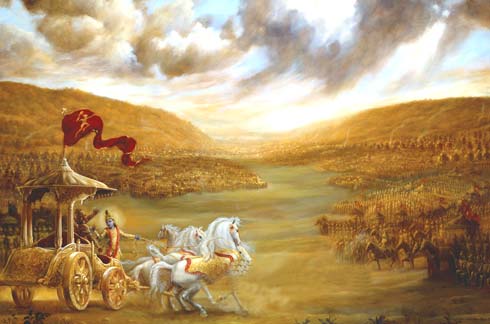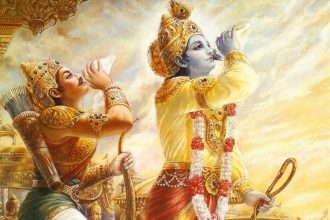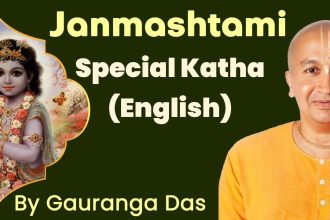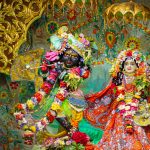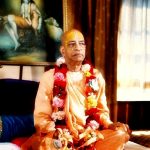Born in the 18th century in the Baleswar district of Orissa, he was initially a learned scholar of the Madhva-sampradāya. He was converted to Gauḍīya Vaiṣṇavism and became the ardent follower of Viśvanātha Cakravartī Thākura. He is especially renowned for his commentary on Vedānta-sūtra called Govinda-bhāṣya; Śrīla Baladeva Vidyābhūṣaṇa was a highly renounced pure devotee.
For the spiritual benefit of mankind, he presented many transcendental literatures to the world. The details of his early life are not known for sure, as he never mentioned his birth place or his family background. Historians have estimated that he was born sometime in the eighteenth century, most probably in Orissa (possibly near Remuna). At a very early age, Baladeva finished his studies of grammar, poetry, rhetoric and logic and then went on pilgrimage. During his travels he spent some time with the Tattvavādīs in South India and thus became conversant with the teachings of Śrī Madhvācārya.
He became a powerful exponent of this philosophy throughout India. Later he was initiated into the Gauḍīya Vaiṣṇava sampradāya by Rādhā-Dāmodara Deva, and went to Vṛndāvana to study under the great ācārya Viśvanātha Cakravartī Ṭhākura. Baladeva’s defeat of an assembly of Rāmānandī scholars is celebrated in Indian philosophical history. It was on this occasion that he composed the Govinda-bhāṣya commentary on the Vedānta-sūtra. Actually, it was dictated to him by the Śrī Govinda Deva Deity; hence, it is named after the Lord.
The commentary so astonished the scholars that they bestowed upon Baladeva the title Vidyābhūṣaṇa (ornament of learning).


